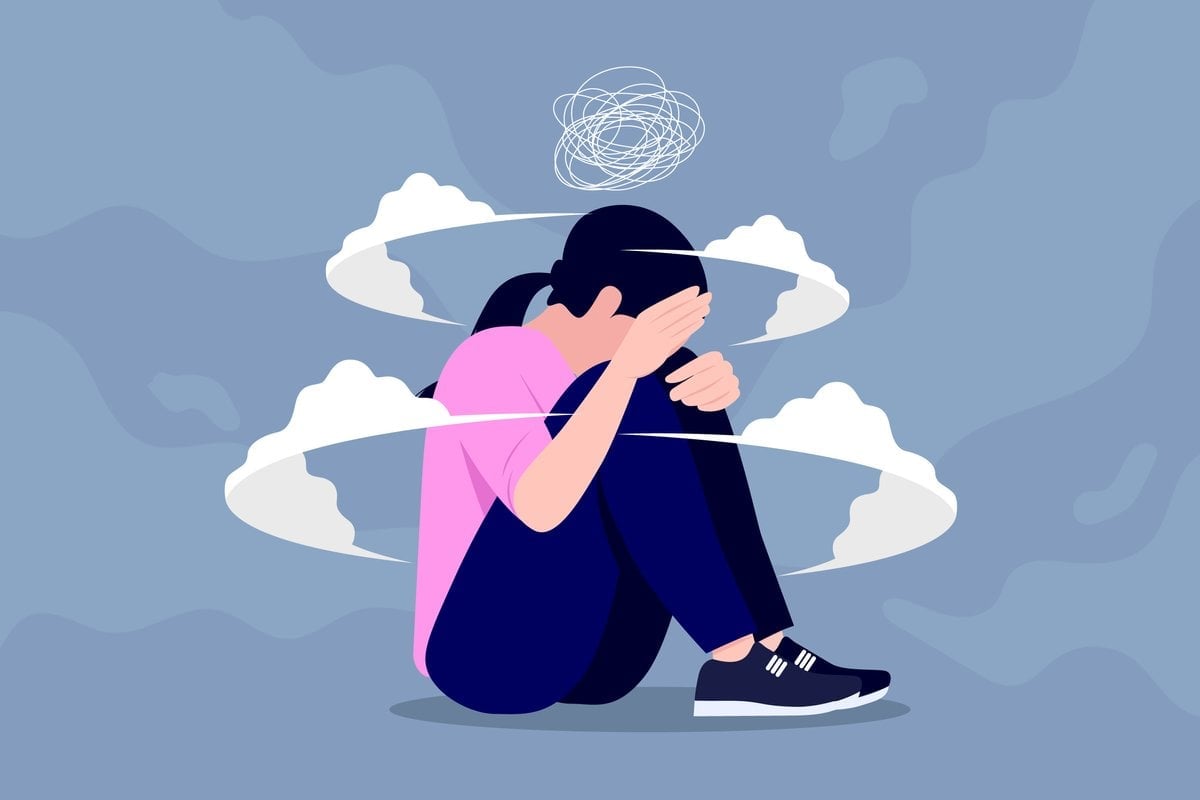
Spinning? Tilting? Dizziness? Feeling like everything is moving around you when it's... not? Welcome to the vertigo club, friends.
Heard of it before? For such a common condition, it's surprising how little we know about it.
While you'd be forgiven for thinking it's just that feeling you get when you're slinking around a tall building and you're scared of heights, vertigo is actually a sign that there's something going on with your body's internal balancing system - specifically, your inner ear.
Because, as it turns out, what's going on in your inner ear is actually very... very important. ¯\_ (ツ)_/¯
Watch: What does your 'pelvic floor' actually mean? Here's everything you need to know, according to a pilates instructor. Post continues below.
While everyday vertigo is a 'normal' thing most people will experience (*insert staring at the computer screen too long and standing up suddenly*), chronic vertigo is something many people deal with on a regular basis - and it can have a pretty negative impact on your life.


Top Comments